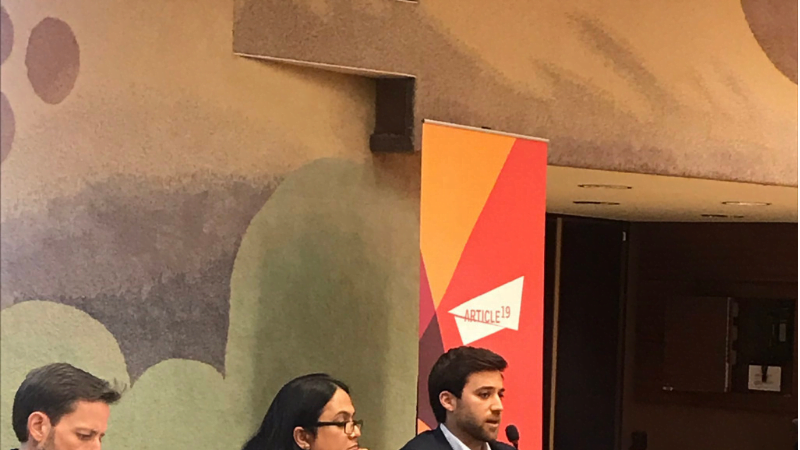As the UN Human Rights Council (HRC) began its 40th session in Geneva, the son of journalist Daphne Caruana Galizia said her targeted assassination was a culmination in failures of government protection.
Andrew Caruana Galizia said impunity persisted in the case of his mother, Daphne, who was reporting about corruption in Malta. Her targeted assassination was a culmination in failures of government protection, followed by libel suits against her estate, he said.
On Monday, the UN HRC launched a four-week session in which major human rights issues will be debated and acted on, with significant implications for the protection of freedom of expression globally.
Discussions will be held around preventing the abuse of counter-terrorism laws, protecting the safety of journalists, and fighting religious intolerance, as well as debates on numerous country situations, following the session in December in which Malta was also in focus.
Caruana Galizia spoke of the difficulty in maintaining international media and political attention around cases, and how weakening multilateralism made that even harder. It has fallen on her family and her children to sustain that, he said.
He spoke to States at HRC 40 urging them to ensure Malta accepts specific recommendations made at the UN Universal Periodic Review (UPR) five months ago for an independent public inquiry into his mother’s death.
International organisation Article 19, which organised the panel, stressed that impunity for attacks against journalist must end.
In the UN HRC session, States will consider UN expert reports on human rights defenders, privacy, freedom of religion and belief and other issues, and negotiate the content of resolutions to be adopted on 22 March.
“Where States are failing in their obligations to protect freedom of expression, the HRC must be a forum in which they are called out. Where necessary, mechanism must be established to pursue accountability and secure redress,” the organisation said.
At HRC 40, as the session is referred to, Article 19 said it was imperative that States acted to challenge these worrying trends of human rights violations, all of which pose a major threat to freedom of expression globally:
- Continued impunity for attacks against journalists;
- Failures by States to combat religious intolerance, while also failing to secure the rights to freedom of religion or belief and freedom of expression;
- The abuse of counter-terrorism laws to target civil society and dissenting voices;
- Attacks against women human rights defenders and environmental and land defenders.
Several of the reports under discussion at HRC 40, presented by UN experts and the UN Office of the High Commissioner for Human Rights (OHCHR), address these concerns in detail. States will also negotiate and adopt resolutions that respond to these trends.
“Throughout HRC 40, States that are vocal in their support of journalists and media freedom must also be bold in naming those States that attack journalists, or do too little to address pervasive impunity for such attacks. We will be urging States to go beyond setting standards to delivering on their commitments, and, when they fall short, to prevent, protect against and remedy all attacks,” the international organisation said.
Read next:
Press freedom a major concern in UN review of human rights in Malta












